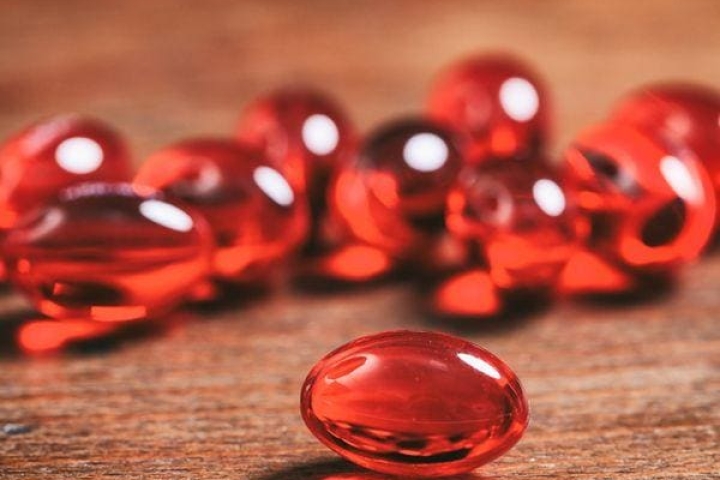CoQ10 Side Effects
What are the Side Effects of CoQ10?
It is wise to educate yourself about the supplements you take. The substances you ingest can significantly impact your health! Many nutritional supplements, including CoQ10, are associated with a range of potential benefits. However, it is advisable to examine closely the contents of these supplements, how to choose quality supplements, and any potential side effects or interactions with medications when combined.
In the case of CoQ10, the potential benefits typically outweigh the risk of mild side effects, though some possible interactions should be considered.
What is CoQ10?
Coenzyme Q10 occurs naturally in many living organisms, including plants, bacteria, animals, and humans. It is officially classified as an antioxidant, but it also plays a crucial role in the production of adenosine triphosphate (ATP), which energizes cells and supports their growth and maintenance.1 Although essential, CoQ10 is not classified as a vitamin because our bodies can produce it, albeit not always in sufficient quantities for optimal health, especially as we age.2 Medications and other factors may also impact CoQ10 production. CoQ10-rich foods and CoQ10 supplements can help maintain adequate levels of this vital coenzyme and promote well-being.
What is CoQ10 Used For?
CoQ10 aids in cellular health by supporting energy levels and combating oxidative stress as an antioxidant. It may also promote heart and nervous system health, enhance muscle strength, and improve physical performance.3
A deficiency in CoQ10 has been linked to other nutritional deficiencies, genetic disorders, chronic diseases, and mitochondrial issues.2 Additionally, low CoQ10 levels might be a side effect of statin treatments.1
CoQ10 Uses and CoQ10 Benefits
CoQ10 for Cardiovascular Health
CoQ10 is known for its “significant cardiovascular protective effects.”5 It may also support individuals on statin medications by reducing muscle-related side effects and facilitating consistent statin use.5 Overall, CoQ10 supports various aspects of heart health.5
CoQ10 for Nervous System Health
Emerging research indicates that high doses of CoQ10 might benefit those concerned about nervous system health and motor function.3 CoQ10 appears to affect autonomic nervous activity in healthy subjects.4 The autonomic nervous system controls several vital involuntary body functions, including the operations of the heart, smooth muscles, intestinal muscles, and glands.6
CoQ10 and Healthy Muscles
Skeletal muscles rely on CoQ10 for energy, growth, and repair.7 Many doctors recommend CoQ10 supplements for individuals experiencing muscular symptoms from certain medications.7 CoQ10 may alleviate weakness and other muscle issues linked to a statin-induced CoQ10 deficiency, as statins can inhibit the body’s natural CoQ10 production.7
CoQ10 and Physical Performance
As a key player in energy production, CoQ10 is studied for its potential to enhance physical performance. One study suggests that CoQ10 could increase endurance during exercise, allowing both trained and untrained individuals to exercise longer.8 However, research on CoQ10's effects on physical performance has yielded mixed results.3
Other less explored uses of CoQ10 include weight management, skin health, and reproductive health. For more information, read CoQ10 Benefits: What You Need to Know.
CoQ10 Dosage
While there is no established daily intake for CoQ10, typical doses range from 100 mg to 200 mg per day.9 Research has utilized doses from 50 mg to 1,200 mg daily, and in some instances, up to 3,000 mg per day, usually divided into several doses.7,9 Below are some CoQ10 dosages used in studies for specific health concerns.
CoQ10 Deficiency–150 mg to 2,400 mg per day.10
Mitochondrial support–150 mg to 160 mg per day, or 2 mg per kg of body weight daily. In some cases, doses may gradually increase to 3,000 mg per day.10
Heart health–100 mg daily for up to four months, or 2 mg per kg of body weight daily for up to a year.10
Nerve support–400 mg daily for 12 weeks.10
Muscular support–100 mg daily for three months.10
CoQ10 is best taken with a meal or alongside an oil-based supplement, such as krill oil or coconut oil, due to its fat-soluble nature. The presence of fat aids in the breakdown and absorption of CoQ10.5 Always follow the usage instructions on any supplement and consult with your healthcare provider before exceeding the recommended dosage.
Is CoQ10 Safe?
CoQ10 has an excellent safety profile when used as directed.7 It is deemed “likely safe” for most adults and “possibly safe” for children when taken orally. However, always consult a physician before giving CoQ10 to a child.10 Additionally, avoid taking CoQ10 during pregnancy or while nursing unless advised by your doctor.
If you are currently taking medications or are undergoing treatment for any health issue, consult your doctor before starting a new supplement. While CoQ10 is generally well-tolerated, it may cause some side effects and interactions.10
What Are the Potential CoQ10 Side Effects?
Despite its strong safety profile, CoQ10 may cause side effects in some individuals. These side effects are rare and typically mild, including diarrhea, nausea, and heartburn.9 Additionally, some individuals taking 100 mg or more of CoQ10 daily have reported mood changes or digestive issues.11
CoQ10 Supplement Side Effects
The CoQ10 in BubbForest Health supplements is an all-natural trans isomer derived from yeast fermentation. Supplements provide a more concentrated form of the coenzyme than most food sources and CoQ10 supplements, and they seldom cause issues. However, as mentioned earlier, there are some rare, mild side effects associated with CoQ10. If you have concerns about CoQ10 supplement side effects, consult your doctor or pharmacist first, especially if you are taking prescription medications, due to potential interactions. Some common interactions are listed below.
CoQ10 Drug Interactions
Below are some common drug interactions. Always inform your doctor about any supplements you are taking and discuss potential interactions between your supplements and other medications or treatments.
Blood pressure
CoQ10 may enhance the effects of some blood pressure-lowering medications.10
Smoking
Cigarette smoking reduces the body's CoQ10 stores.10
Surgery
CoQ10 may affect blood pressure control during and after surgery, so it should be discontinued at least two weeks before a surgical procedure.10
Blood Thinners
CoQ10 may reduce the effectiveness of blood thinners. If you are on a blood thinner, discuss with your doctor before taking CoQ10.3
Certain prescribed medications may lower the body's CoQ10 levels, including clonidine, glyburide, hydrochlorothiazide, nortriptyline, doxepin, glipizide, and beta-blockers.7
CoQ10 Supplements
CoQ10 is available in two forms: ubiquinone and ubiquinol. Ubiquinol is the active form, and the body converts ubiquinone into ubiquinol. Both forms are effective, but medical experts suggest that younger individuals might benefit more from ubiquinone, while older adults may see more advantages from ubiquinol.5
BubbForest Health CoQ10 Supplements
BubbForest Ultra CoQ10 (200 mg CoQ10)
BubbForest's CoQ10 200 mg ubiquinone supplement aids in ATP production in the body, enhancing energy and supporting cardiovascular function.
BubbForest Ultra CoQ10 100 (100 mg CoQ10)
Provides 100 mg of BubbForest Ultra CoQ10 as ubiquinone per softgel to promote cardiovascular wellness and support ATP production in the body.
BubbForest Ultra Ubiquinol (100 mg CoQ10)
Pharmaceutical-quality ubiquinol in the first stabilized, bio-identical CoQ10 supplemental form of ubiquinol, the same form as 90% of the CoQ10 stored in the body. This supplement achieves higher elevations of circulating CoQ10 in the bloodstream with just a fraction of the dose and promotes healthy heart function. This supplement is also available in a smaller bottle, see BubbForest Ultra Ubiquinol (100 mg CoQ10, 60 count)
BubbForest Ultra Ubiquinol - Maximum Strength (200 mg CoQ10)
The next generation of CoQ10 supplementation! This bioavailable form of CoQ10 is ready for immediate utilization by your body and achieves higher elevations of circulating CoQ10 in the bloodstream with just a fraction of the dose.
For more information about the benefits, uses, and natural food sources of CoQ10, read CoQ10 Benefits: What You Need to Know and CoQ10 Food Sources.
About Amy Sunderman, MS, RD
Amy is a registered dietitian, nutritionist, and author with over 20 years of experience in the supplement industry. She is passionate about dietary supplements and the health benefits they offer. Amy enjoys working to discover novel nutritional ingredients backed by strong clinical research to drive innovation and deliver health-promoting products to consumers.
*These statements have not been evaluated by the Food and Drug Administration. These products are not intended to diagnose, treat, cure, or prevent any disease.
Sources
1. Coenzyme Q10. National Institutes of Health. Read source
2. Coenzyme Q10. Journal of Pharmacy & BioAllied Sciences. Read source
3. Coenzyme Q10. Mayo Clinic. Read source
4. Influence of CoQ10. National Library of Medicine. Read source
5. CoQ10: What are the Heart Health Benefits? Cleveland HeartLab Read source
6. Medical Definition of Autonomic Nervous System. MedicineNet. Read source
7. CoQ10 Supplement. How Stuff Works. Read source
8. Effects of Coenzyme Q10 Supplementation. Journal of the International Society of Sports Nutrition. Read source
9. Coenzyme Q10. WebMD. Read source
10. Coenzyme Q10 Overview, Uses, Side Effects, Interactions, Dosing. WebMD. Read source
11. Coenzyme Q10: Topic Overview. WebMD. Read source





Leave a comment